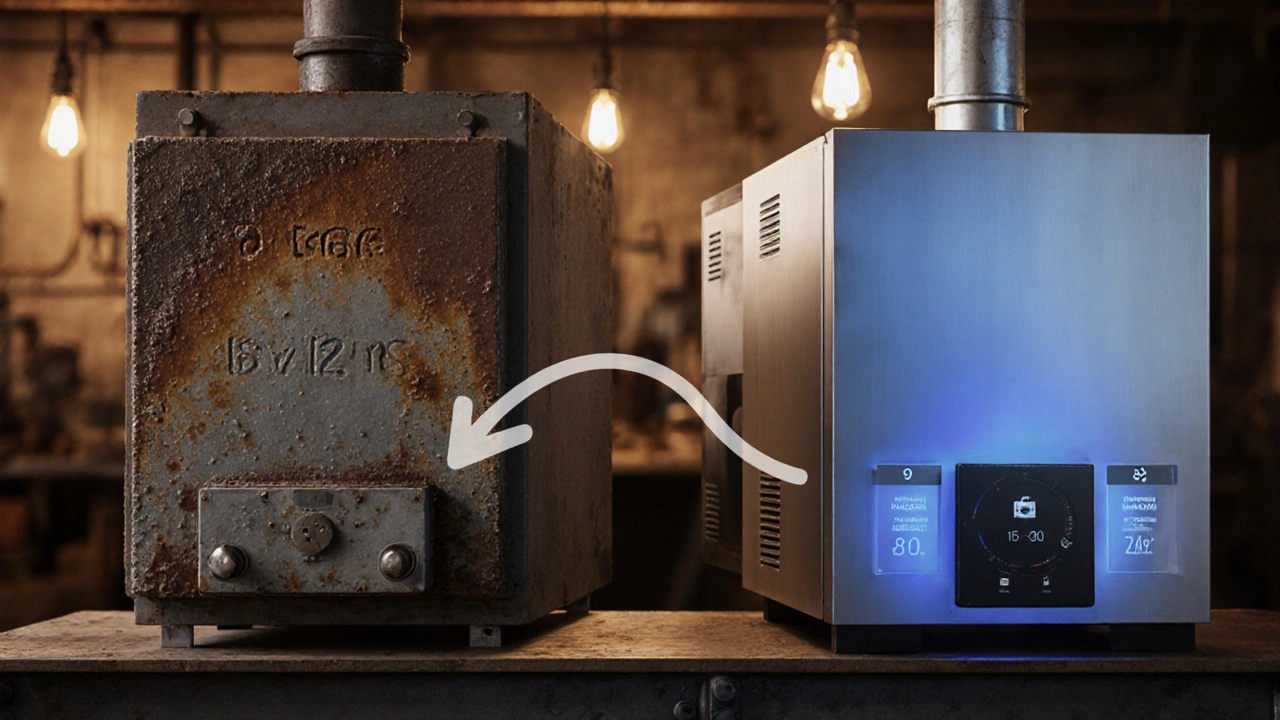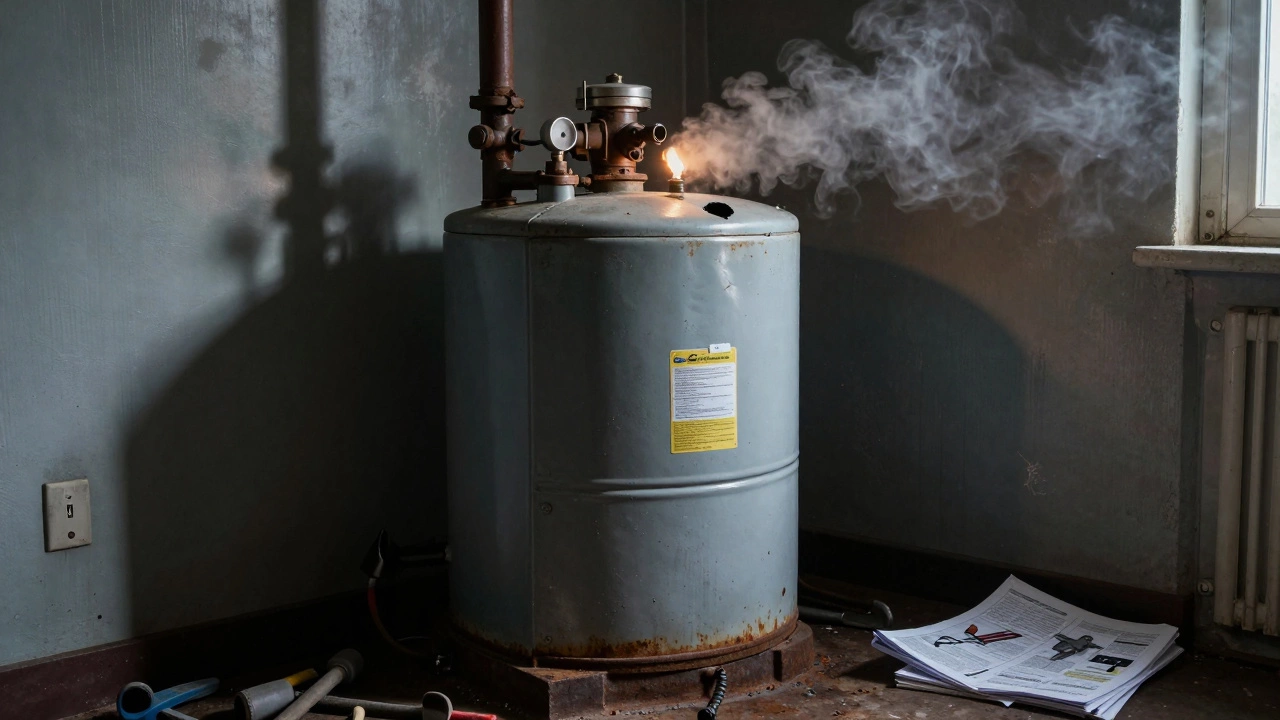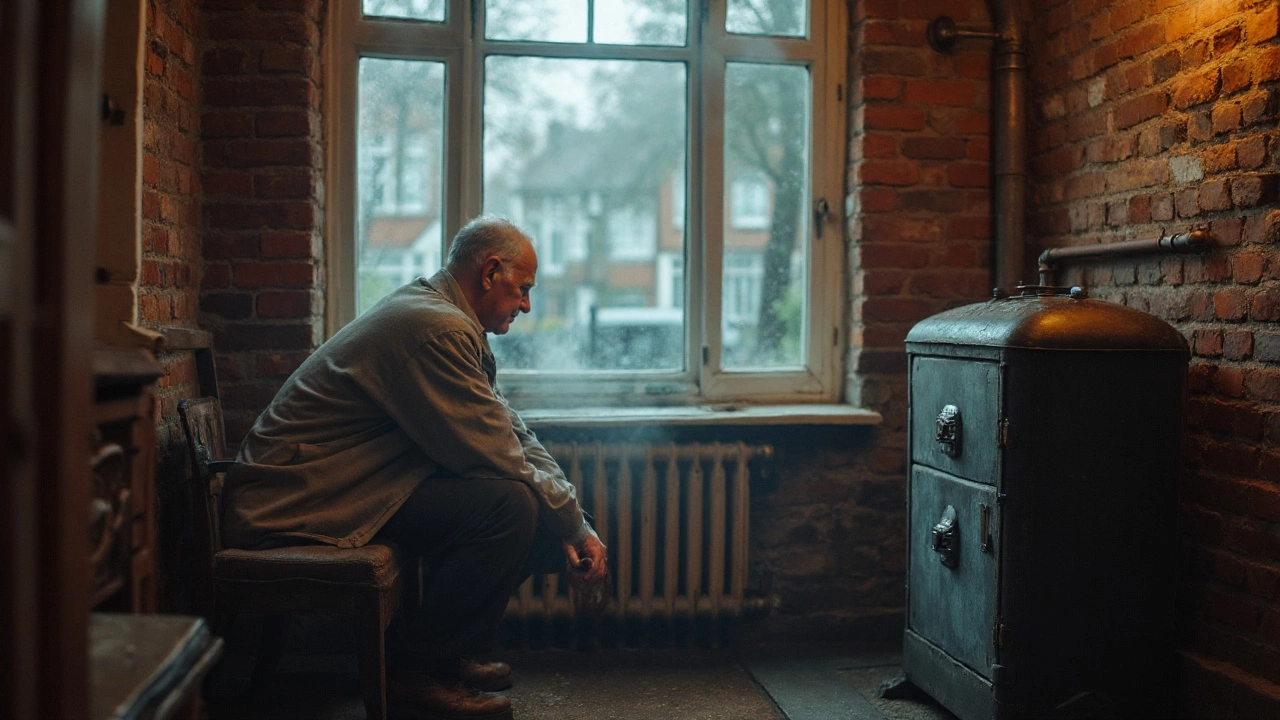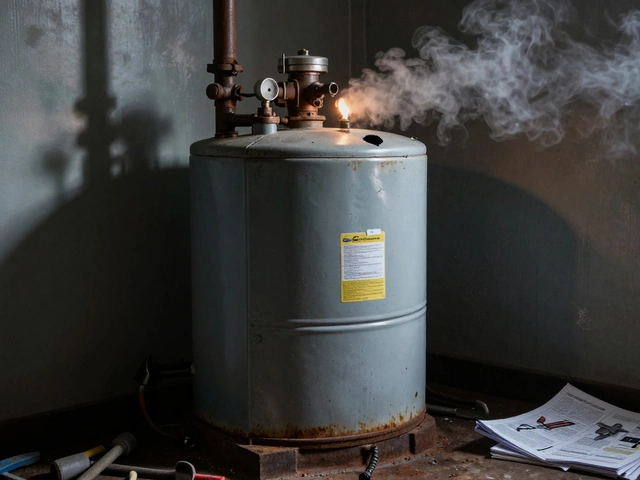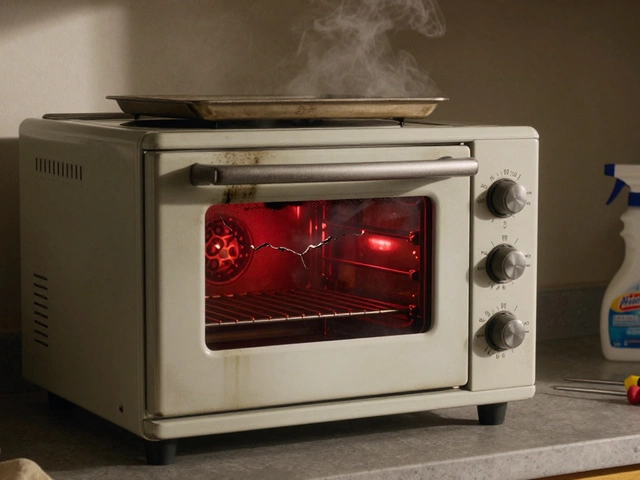Boiler Replacement Calculator
Replace or Repair Calculator
Determine if repairing your boiler is cost-effective or if replacement is better based on your specific costs and the boiler's lifespan.
Results
Ever wonder why some boilers cough out smoke after ten years while others keep humming like a well‑tuned engine? The answer boils down to a mix of design, maintenance, water quality and how hard you push the system. Below you’ll find the real numbers, the hidden factors that shave years off a unit, and a clear game plan to squeeze every extra year out of your boiler.
What is a boiler’s "lifespan"?
A boiler’s boiler lifespan is the period it can operate safely and efficiently before performance drops or major components fail. Industry surveys in the U.K. and U.S. show average lifespans ranging from 8 - 15 years for older cast‑iron models, up to 20 - 30 years for modern condensing units when they receive regular care.
Key factors that determine how long a boiler lasts
- Type of boiler: Condensing boilers, built with stainless steel heat exchangers, typically outlive traditional cast‑iron or steel‑shell models.
- Water quality: Hard water can cause scale buildup on the Heat exchanger, reducing efficiency and accelerating corrosion.
- Installation quality: Poor venting or an undersized Flue can lead to condensation that eats away at metal parts.
- Annual service: A professional Annual service checks combustion efficiency, tightens connections, and flushes sediments.
- Operating patterns: Constantly running a boiler at maximum output wears components faster than cycling on/off based on demand.
- Warranty and manufacturer support: Boilers with longer warranty periods often use higher‑grade materials and come with better after‑sale service.
Typical lifespans by boiler type
| Boiler Type | Average Lifespan | Key Longevity Factors |
|---|---|---|
| Cast iron boiler | 8‑12 | Robust body but prone to rust if water isn’t treated. |
| Steel‑shell boiler | 10‑15 | Lightweight, faster heating, but corrosion is a risk. |
| Condensing boiler | 15‑30 | Stainless steel heat exchanger and high Combustion efficiency (≥90%). |
| Combi boiler | 12‑20 | Integrated water heater; lifespan depends on hot‑water demand. |
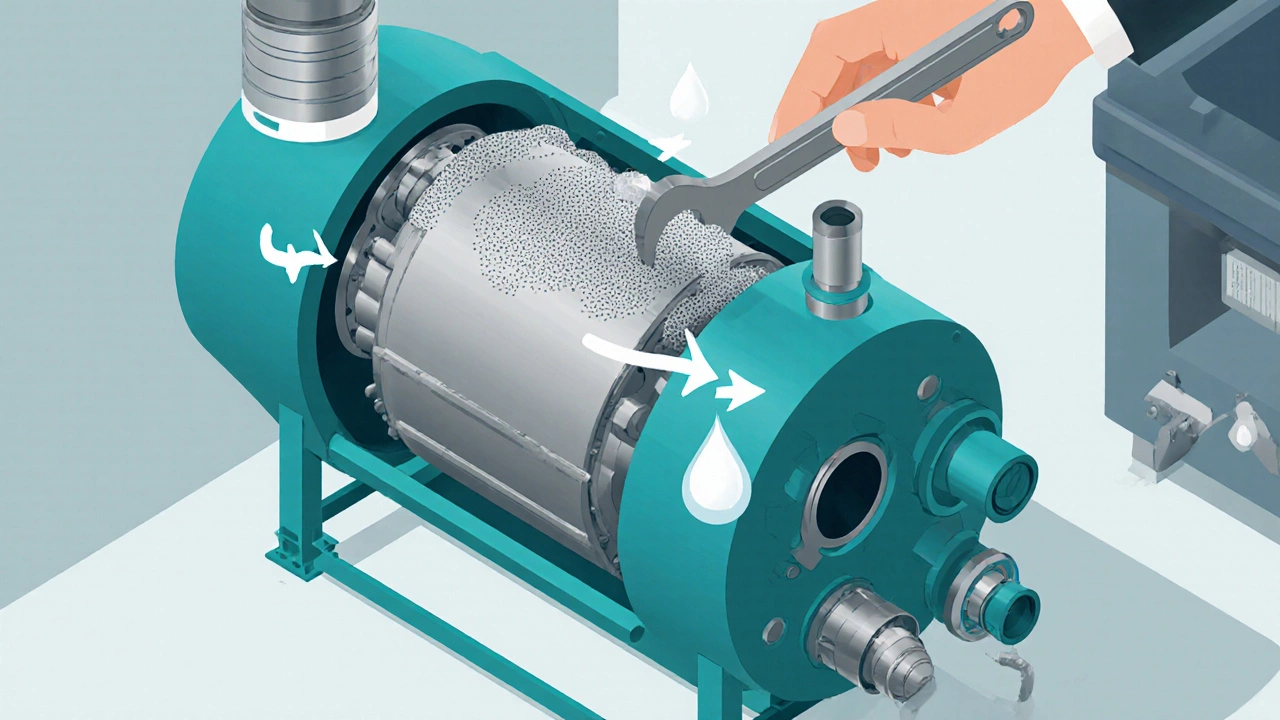
How to read the numbers: a quick checklist
- Identify your boiler’s make, model and type. Look for the nameplate or manual.
- Check the installation date. If you can’t find it, ask the original installer or check service records.
- Match the age against the typical lifespan table above.
- Ask yourself: Have I had a yearly Annual service with a certified technician?
- Inspect for signs of corrosion on the Heat exchanger and any leaks around the Flue.
- Evaluate your water hardness. If you have hard water, consider a water softener.
- Review the warranty’s remaining period-if it’s expired, you may be facing higher repair costs.
When to consider a replacement versus a repair
Repairing a boiler that’s still within half its expected lifespan usually makes sense. However, if you’re past the median age for your boiler type, the cost‑benefit tilt shifts toward replacement. Use this rule of thumb:
- If repair costs exceed 50% of a new unit’s price, replace.
- If the boiler fails more than once in a 12‑month span, replacement is the safer bet.
- When efficiency drops below 80% (measured during a service), a new condensing model can slash fuel bills by 15‑20%.
Extending your boiler’s life: pro tips
Even a 20‑year-old unit can stay reliable if you treat it right. Here are real‑world habits that work:
- Schedule a professional service every 12 months. The technician will clean the burner, test the Thermostat, and verify that the Combustion efficiency stays above 90%.
- Install a magnetic water filter to trap rust particles before they reach the heat exchanger.
- Bleed radiators regularly to keep the system balanced and avoid excessive cycling.
- Upgrade older boilers to a modern Condensing boiler if you’re hitting the high‑end of the lifespan range; the newer unit will often outlive the old one by a decade.
- Set the thermostat a few degrees lower and use programmable schedules to reduce continuous high‑load operation.
Cost considerations: repair, replacement, and running expenses
Understanding the financial side helps you decide whether to fix or replace. Rough 2025 UK figures (adjusted for inflation) are:
| Item | Typical Cost |
|---|---|
| Minor repair (e.g., fan motor) | £150‑£300 |
| Major component replacement (heat exchanger) | £800‑£1,500 |
| Full boiler replacement (condensing) | £2,500‑£4,500 |
| Annual service | £80‑£120 |
| Energy savings with new condensing unit | £200‑£400 per year |
Run the numbers: if a repair costs £1,200 and you’re already 18 years into a 20‑year lifespan, you’re likely better off spending £3,000 on a new boiler that will save you £300 annually for the next decade.
Common myths about boiler longevity
- Myth: “If it still works, it’s fine to skip service.”
Fact: Hidden corrosion can cause sudden failure; a yearly check catches problems early. - Myth: “All boilers last the same amount of time.”
Fact: Material, design and usage patterns create a wide spread of possible lifespans. - Myth: “Older boilers are always cheaper to run.”
Fact: Older non‑condensing models often run 10‑20% less efficiently, raising bills.
FAQ - Your boiler lifespan questions answered
What is the average lifespan of a typical residential boiler?
Most modern condensing boilers last 15‑30 years, while older cast‑iron or steel‑shell units tend to reach 8‑15 years before major parts need replacement.
How often should I have my boiler serviced?
A certified technician should inspect the boiler at least once a year. This keeps combustion efficiency high and catches corrosion early.
Can hard water shorten my boiler’s life?
Yes. Scale deposits on the heat exchanger reduce heat transfer and increase corrosion risk. Installing a water softener or magnetic filter helps.
When is it smarter to replace my boiler rather than repair it?
If repair costs are more than half the price of a new unit, if the boiler is older than half its typical lifespan, or if efficiency has dropped below 80%, replacement is usually the better financial move.
Do I need a new boiler if I’m switching to renewable heating?
Not necessarily. Many newer condensing boilers can be integrated with heat‑pump hybrids or solar thermal systems, extending their useful life while reducing carbon footprint.
Bottom line: knowing the expected lifespan of your specific boiler type, staying on top of maintenance, and watching costs will help you decide when it’s time to call a professional for a tune‑up or start shopping for a replacement. A well‑kept boiler can keep your home warm for decades-just give it the attention it deserves.
